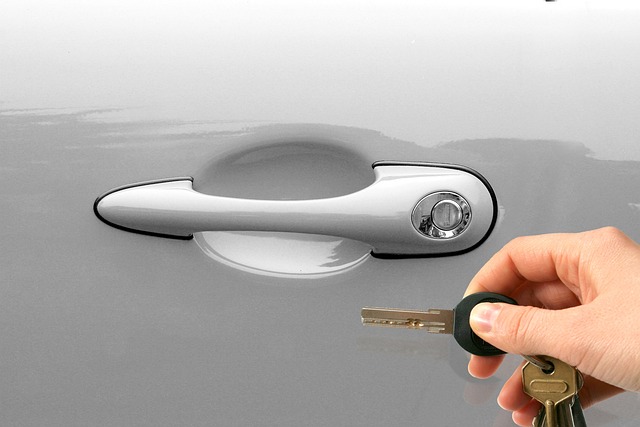Car insurance is a contractual agreement between a vehicle owner and an insurance provider that offers financial protection in case of accidents, theft, or damages to the insured vehicle. Understanding what car insurance entails and why it is essential can help drivers make informed decisions.
Why Do You Need Car Insurance?
Car insurance is mandatory in most countries for several critical reasons. Firstly, it provides financial protection by covering repair costs and medical expenses in case of an accident. Secondly, it protects you from legal liabilities if you are responsible for damage to another person’s property or injuries. Finally, having car insurance ensures peace of mind, knowing that unexpected incidents won’t lead to significant financial stress.
What Are the Types of Car Insurance?
Car insurance policies come in various forms, each offering different levels of protection:
- Liability Insurance: Covers damages and injuries caused to others in an accident where you are at fault. It is the minimum requirement in most jurisdictions.
- Comprehensive Insurance: Protects your vehicle against non-collision incidents like theft, vandalism, and natural disasters.
- Collision Insurance: Covers repairs or replacement of your vehicle if it is damaged in an accident, regardless of fault.
- Personal Injury Protection (PIP): Pays for medical expenses for you and your passengers, irrespective of who caused the accident.
- Uninsured/Underinsured Motorist Coverage: Protects you if you are involved in an accident with a driver who has insufficient or no insurance.
How Does Car Insurance Work?
Car insurance works on a premium-payment basis. You pay a regular premium to the insurance provider, and in return, the provider offers coverage as outlined in the policy. In the event of an incident, you file a claim, and the insurer assesses the damages and determines the payout based on your policy terms.
How Are Car Insurance Premiums Determined?
Insurance providers calculate premiums based on several factors, including:
- Driver Profile: Age, gender, and driving history significantly impact the cost.
- Vehicle Type: Make, model, and year of the vehicle determine repair costs and safety ratings.
- Location: Urban areas typically have higher premiums due to higher accident rates.
- Usage: Frequent drivers may face higher premiums due to increased risk.
- Coverage Level: Comprehensive policies cost more than basic liability coverage.
What Does Car Insurance Typically Cover?
Car insurance coverage depends on the type of policy. Common areas of coverage include:
- Property Damage: Repairs or replacement of another person’s vehicle or property.
- Bodily Injury: Medical expenses, lost wages, and legal fees resulting from injuries caused to others.
- Collision Damage: Repairs to your vehicle after an accident.
- Comprehensive Incidents: Theft, vandalism, or damage caused by weather.
What Are the Benefits of Having Car Insurance?
The primary benefits of car insurance include:
- Financial Security: Avoid hefty out-of-pocket expenses for repairs and medical bills.
- Legal Compliance: Meet the legal requirements for vehicle operation.
- Peace of Mind: Drive confidently knowing you are covered for unforeseen events.
- Protection Against Lawsuits: Avoid financial and legal troubles if you’re at fault in an accident.
What Happens If You Don’t Have Car Insurance?
Driving without car insurance can result in severe consequences, such as:
- Legal Penalties: Fines, license suspension, or vehicle impoundment.
- Financial Liability: Paying out-of-pocket for damages and injuries.
- Increased Premiums: Future insurance costs may be higher due to lack of coverage history.
How Can You Choose the Right Car Insurance Policy?
Selecting the best car insurance involves:
- Assessing Your Needs: Determine the coverage you need based on your vehicle’s value and driving habits.
- Comparing Quotes: Shop around for competitive rates from different insurers.
- Checking Reviews: Read customer feedback to gauge service quality.
- Understanding Policy Terms: Ensure clarity on deductibles, limits, and exclusions.
How Can You Save on Car Insurance?
Reducing car insurance costs is possible with these strategies:
- Safe Driving: Maintain a clean driving record to qualify for discounts.
- Bundling Policies: Combine car insurance with other policies like home insurance.
- Higher Deductibles: Opt for a higher deductible to lower premium costs.
- Telematics Programs: Use insurer-provided devices to track and reward safe driving habits.
What Is the Future of Car Insurance?
The car insurance industry is evolving with technological advancements:
- Telematics and Usage-Based Insurance: Personalized premiums based on driving behavior.
- AI in Claims Processing: Faster and more accurate claim settlements.
- Electric Vehicle Coverage: Policies tailored for electric and hybrid vehicles.
Car insurance is an essential aspect of responsible vehicle ownership. By understanding its importance, coverage options, and how to choose the right policy, you can ensure both financial security and peace of mind while driving.


